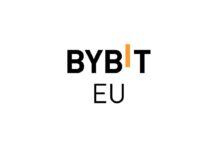
Presidents of two supervisors have told a Senate committee what cryptocurrencies are and how they intend to regulate them. In particular, the presentation by CFTCs Christopher Giancarlo currently enraptures the crypto-communities. He shows that Bitcoin has perhaps already exceeded the threshold from which a ban is no longer in question.
If you are wondering why the Bitcoin price has suddenly risen again, it might be a good idea to watch a video from the US Senate. The Banking, Real Estate and Urban Affairs Committee recently held a virtual currency hearing. Jay Clayton, chairman of the US Securities and Exchange Commission and J. Christopher Giancalor, chairman of the Options and Futures Trading Committee (CFTC), have explained to senators what cryptocurrency is all about and how their regulators regulate it in the future want.
ICOs will be regulated
One point that became clear during the hearing is that the Exchange Supervisory Authority will initiate Initial Coin Offerings (ICO). Clayton explains that companies in this area are not yet sufficiently compliant, which poses risks to investors, “including risks caused by inadequate, false or non-existent disclosures, volatility, manipulation, fraud and theft. “Clayton sees ICOs as the issue of stocks (or bonds) and intends to regulate them as well. “Those who seek semantic contortions [to escape definition as a security] are in the crosshairs of our investigators.” So far, according to Clayton, not a single ICO has registered with the SEC.
For the future, it is therefore to be expected that ICOs in the USA will be fully regulated. On the one hand, this may help make ICOs a serious alternative to stocks and bonds, but on the other hand it will put an end to the uncontrolled raising of capital by the ICOs.
Clayton also said that his agency is not likely to release an ETF soon enough.
“We owe it to this new generation …”
More optimistic was the presentation by J. Christopher Giancarlo, who has chaired the CFTC since the beginning of 2017, the authority that oversees the options and futures exchanges. The CFTC has released the futures on Bitcoin on the Chicago Stock Exchange and recently sent a summons to Bitfinex and Tether for non-regulated issuance of dollar-based crypto-tokens. Like Clayton, Giancarlo has been working intensively on cryptocurrencies. Unlike this, he takes a very open attitude.
He has great potential for the technology behind Bitcoin: “Distributed ledgers (distributed account books) have the potential to increase economic efficiency, eliminate systemic risks arising from centralization, protect against fraud and improve the quality of data. “Giancarlo cites a study that said cryptocurrency technology – Blockchain or Distributed Ledger – could save around $ 20 billion in finance. Then he presents his regulatory approach:
“Two decades ago, as the Internet reached a phase of rapid growth, the Republican Congress and the Clinton administration passed some enlightened principles: the Internet should create progress through human interaction; Voluntary contractual arrangements and the free market should be supported; Governments and regulators should act in a moderate way so as not to damage the evolution of the Internet. ”
Giancarlo calls this approach a “do no harm” regulation. In recent years, this practice has not stopped, if not promoted, the massive investment made on the Internet. “I think this approach is right to deal with Distributed Ledger technology.” However, cryptocurrency matters are not that easy. “Virtual currencies probably require more regulatory attention in key areas.” He points to ICOs in particular, which he calls for more caution to prevent investors from being exposed to high risks.
Then Giancarlo tells the story that will make him a star in the Bitcoin scene. He had tried to introduce his children and nieces into investment, had built a deposit for them, but failed to inspire them for shares. “Something has changed in the last year. They bought Bitcoins and are excited about it. My niece, she’s still a kid, keeps Bitcoins. She says ‘Hodl’, which means ‘Hold on for dear live’. She believes in it, and I think she represents a lot of people. “Giancarlo urges the Senate to accept this enthusiasm of youth. The wonderful sentence he finds for it deserves its own paragraph:
“We owe this new generation to support their interest in this technology by moderately regulating it.”
A ban should be finally off the table
The children and the niece of the chairman of a regulatory authority in the US have Bitcoins and are very excited. The daughter of JP Morgan boss Jamie Dimon also has Bitcoins. And one might like to assume that the son-in-law of Donald Trump or the children of his government hold bitcoins.
This little fact is significant. Because you think a government can prohibit something that is used by the children of its members? If the US came up with the idea of criminalizing bitcoins and other cryptocurrencies, it would mean a lot of members of the government and parliamentarians would have to issue a punitive order against their relatives. Yes, even doing only political acts that harm cryptocurrencies equals financial damage to the offspring. One can assume that there will be no Bitcoin hostile policy in the US.
This does not mean that everything will be allowed. Maybe on the contrary. Because if Giancarlo’s niece invests in cryptocurrencies herself, her uncle will hardly allow her to be pulled off by windy slitters. The overseers will do their utmost to regulate the beautiful new world of crypto finances for their offspring, reducing casualties and risks and bringing scammers and rip-offs to justice.











